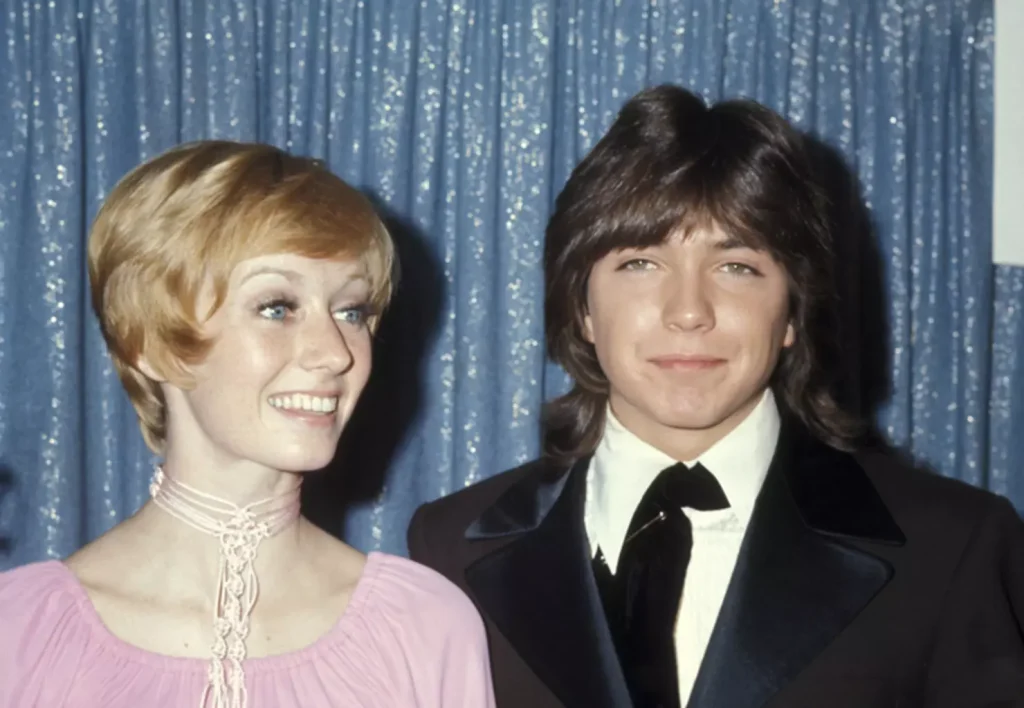
A Timeless Confession of Young Love
In the autumn of 1970, when the world was swaying to the rhythms of change and revolution, a young heartthrob named David Cassidy captured the imagination of an entire generation with his heartfelt anthem, “I Think I Love You.” Emerging from the backdrop of a television show that defined an era, this single became a beacon of youthful emotion and undeniable charm. With its debut, it soared to the pinnacle of musical achievement, claiming the coveted number one spot on the Billboard Hot 100 chart in November of that year.
The song was not just another pop tune; it was a cultural milestone that resonated deeply with its audience. At its core, “I Think I Love You” is an earnest exploration of the confusing yet exhilarating emotions that accompany first love. Its lyrics convey the inner turmoil and vulnerability of a young man grappling with newfound feelings—an experience universally understood by anyone who has ever found themselves caught in the throes of affection.
David Cassidy, who played the role of Keith Partridge in “The Partridge Family,” was catapulted into superstardom largely due to this song. His portrayal of Keith, coupled with his genuine vocal performance, blurred the lines between character and reality for many fans. The show itself was a light-hearted depiction of a family band navigating life and music together, but “I Think I Love You” transcended its origins, becoming an anthem for teenagers everywhere.
Written by Tony Romeo, a talented songwriter known for crafting catchy and emotive tunes, the song’s narrative is straightforward yet profound. It captures the essence of youthful uncertainty—those moments when one’s heart races at the mere thought of another person, even when one isn’t entirely sure why. The lyrics are simple but powerful: “I think I love you / So what am I so afraid of?” These lines encapsulate the fear and excitement that accompany such revelations, striking a chord with listeners who see their own experiences mirrored in Cassidy’s earnest delivery.
The backdrop against which “I Think I Love You” was released cannot be ignored. The late 1960s and early 1970s were marked by significant social upheaval and transformation. Amidst protests, cultural shifts, and burgeoning movements for change, this song offered a momentary escape—a reminder of simpler times when love was both daunting and delightful.
For many older listeners today, revisiting this classic tune is akin to opening a time capsule filled with cherished memories. It evokes images of bedroom walls plastered with posters of David Cassidy, vinyl records spinning on turntables, and afternoons spent watching “The Partridge Family.” It’s a reminder of an era where music served as both refuge and revelation.
David Cassidy’s impact through “I Think I Love You” extends beyond just music charts; it marks a significant chapter in pop culture history. His ability to convey genuine emotion through song endeared him to millions, leaving an indelible mark on those who grew up during that time. Even now, decades later, his voice continues to evoke nostalgia—a testament to his enduring legacy.
In reflecting upon “I Think I Love You,” one is reminded not only of youthful infatuation but also of the power of music to encapsulate moments in time. For those who lived through its release, it’s more than just a song; it’s a soundtrack to their youth—a melodic reminder of innocence and discovery.
As we listen once more to David Cassidy’s iconic declaration of love, we’re transported back to those days when every feeling was new and intense, and every song could shape our dreams. It’s these timeless qualities that ensure “I Think I Love You” remains forever embedded in our collective memory—a cherished piece of our past that continues to resonate with each passing generation.
